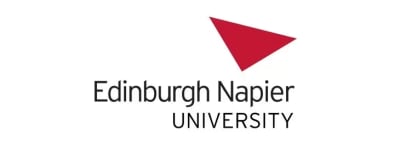
MSc Robotics and Autonomous Systems Engineering
Edinburgh, United Kingdom
DURATION
1 Years
LANGUAGES
English
PACE
Full time
APPLICATION DEADLINE
Request application deadline
EARLIEST START DATE
Sep 2024
TUITION FEES
GBP 18,800 *

STUDY FORMAT
On-Campus
* overseas and EU | Scotland, England, Wales, Northern Ireland, and Republic of Ireland: £7,280
Introduction
Become an expert in the fast-evolving world of Robotics, and equip yourself for a job in the industry of the future
Robots and autonomous systems are adopted into our daily lives and have important roles in a range of modern engineering disciplines including computer science, mechanical engineering, electrical, and electronic engineering. Robotics and autonomous systems engineering is a multidisciplinary scientific and technological field applying complex systems (robots) to perform tasks done traditionally by human beings.
The importance of robots and autonomous systems lies in their strong economic contribution across diverse global market sectors. This exciting Masters course offers students the opportunity to study the most exciting aspects of the Internet of Things, mechanical design, electronics, and communication and apply them to the design and manufacture of smart autonomous systems. The program comprises a mix of core principles of this emerging field of autonomous systems. It provides a broad coverage of all of the major disciplines in automation, process industry, and network analysis.
Typical entry points to this course are in January and September. Please enquire for more information.
Ideal Students
This exciting course is suitable for engineering, computing, and physical science graduates who are interested in working in areas where robots are used for many important applications including industrial manufacturing, transport, logistics, automobile manufacture, autonomous driving, space exploration, surveillance, emergency, and rescue, education and health care. The adoption of robots in industries worldwide has increased significantly in recent years. With current innovations and the rate of growth, we will likely see robots replace many manual tasks and generate opportunities for more qualified jobs.
Admissions
Curriculum
This MSc will cover two major aspects (hardware and software) of robotics and autonomous systems. The two core modules (Wireless Sensors and Mobile Communications and Automation and Robotics) aim to cover three components of autonomous robots: sensors, controllers, and actuators. The other two core modules (IoT and Autonomous Systems and Advanced Embedded Systems) aim to cover the theoretical fundamentals and practical applications of decision-making, problem-solving, and learning abilities in software tools used for robots.
This course consists of five compulsory core modules and two optional modules.
Core Modules
- Automation and Robotics (MEC11107)
- Wireless Sensors and Mobile Communications (ELE11119)
- IoT and Autonomous Systems (ELE11118)
- Advanced Embedded Systems (ELE11120)
- MSc Project (ENG11100)
Optional Modules
Two modules are to be selected from the following list.
- Human-Robot Interaction (CSI11102)
- Modelling and Computation for Smart Places (ELE11117)
- Network Security (CSN11111)
- Research Through Design (CSI11101)
- Mechatronic Systems (MEC11114)
- Research Skills and Project Management (MEC11117)
Modules
Modules that you will study* as part of this course
- Advanced Embedded Systems ( ELE11120 )
- Automation and Robotics ( MEC11107 )
- Introduction to Human-Robot Interaction ( CSI11102 )
- IoT and Autonomous Systems ( ELE11118 )
- MSc Project ( ENG11100 )
- Mechatronic Systems ( MEC11114 )
- Modelling and Computation for Smart Places ( ELE11117 )
- Network Security ( CSN11111 )
- Research Skills and Project Management ( MEC11117 )
- Research Through Design ( CSI11101 )
- Wireless Sensors and Mobile Communications ( ELE11119 )
*These are indicative only and reflect the course structure in the current academic year. Some changes may occur between now and the time that you study.
Assessments
A wide range of assessment methods is used, including traditional exams, coursework, oral presentations, critical self-assessments, scientific literature, and group projects. Coursework provides opportunities for independent study, enhancing student knowledge and experience, and analysis and problem-solving. These activities are supported by tutorials, seminars, and class projects. The MSc project integrates a range of transferable skills engineering knowledge and expertise.
Program Outcome
This course is technology-focused and will create several opportunities for acquiring and applying technical skills and expertise in robotics and autonomous systems. This one-year postgraduate degree will equip its graduates with skills that will be of immediate use and will also develop them for senior technical and research leadership roles in the future. With the growing demand for highly skilled professionals within worldwide market manufacturers, completing this course will provide a distinctive skill set that graduates will find useful in securing employment globally.
Program Tuition Fee
Career Opportunities
From manufacturing units to experimental robotics for medical, military, and automotive industries, the future of robotics finds tremendous opportunities for its budding professionals. Robotics Engineering is considered a high-end professional career worldwide. A Robotic engineer can be employed in manufacturing plants, laboratories, medical fields, mining, the automation sector, life sciences, aerospace engineering, agricultural engineering, etc. There is a great demand for robotic engineers in the gaming industry and manufacturing units as well. This field can offer jobs like service and repair as well as designing and creating interfaces and systems. It’s a multi-disciplinary field with growing opportunities as the industry expands.
This MSc can provide career opportunities, including jobs in the automotive industry, aerospace industry, medical robots, offshore energy, and advanced industrial quality control.
Facilities
Program delivery
There are two trimesters of taught modules, followed by an individual MSc project during the third trimester. You will study six taught modules. A standard module is equivalent to 200 hours of learning and on successful completion of each module you will achieve 20 credits towards your chosen award.
This is a full-time course and is split up into three trimesters. You can choose to start in either January or September.
Duration:
- September starts: 12 months
- January starts: 15 months with a three-month break over the summer (after the first taught trimester)
